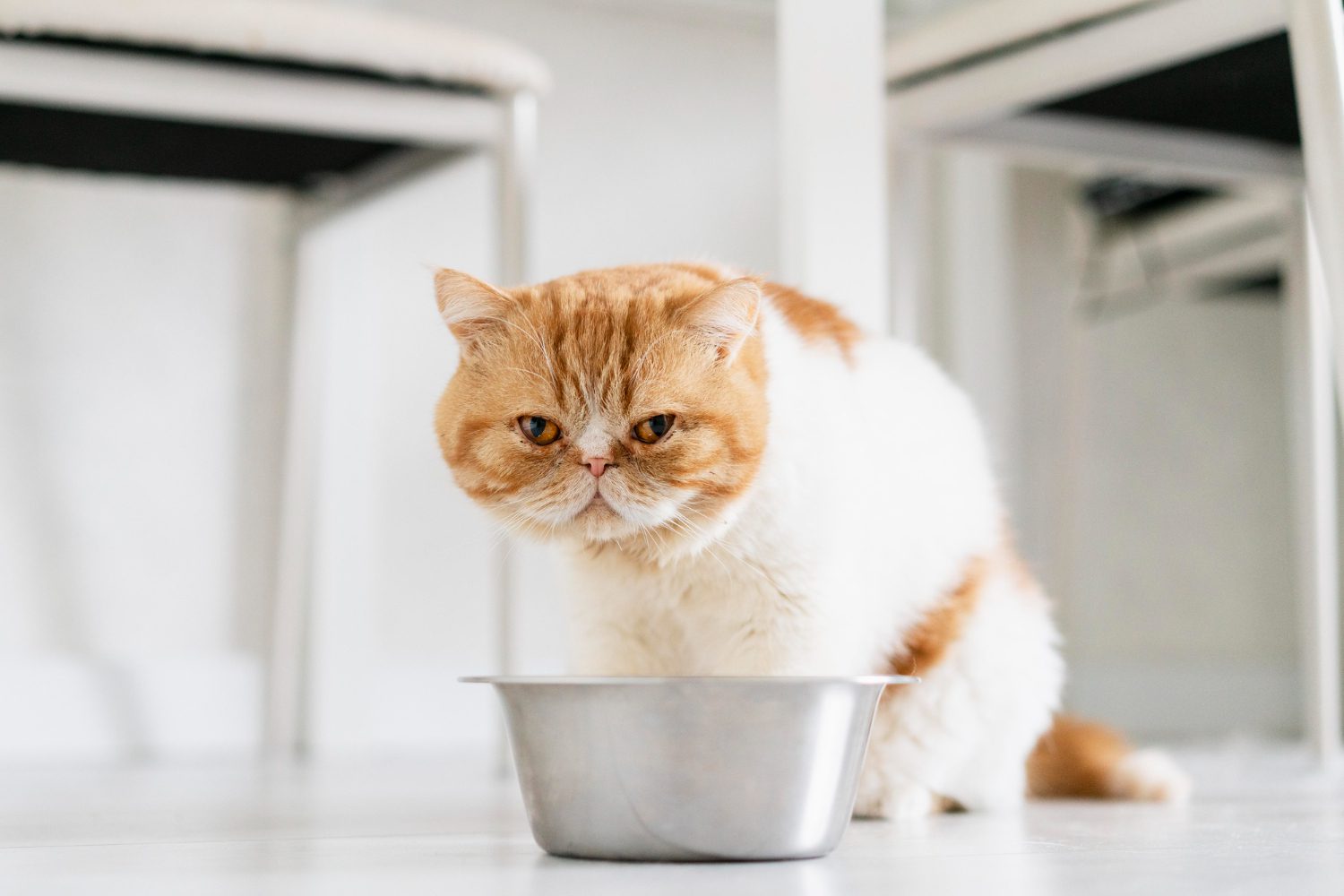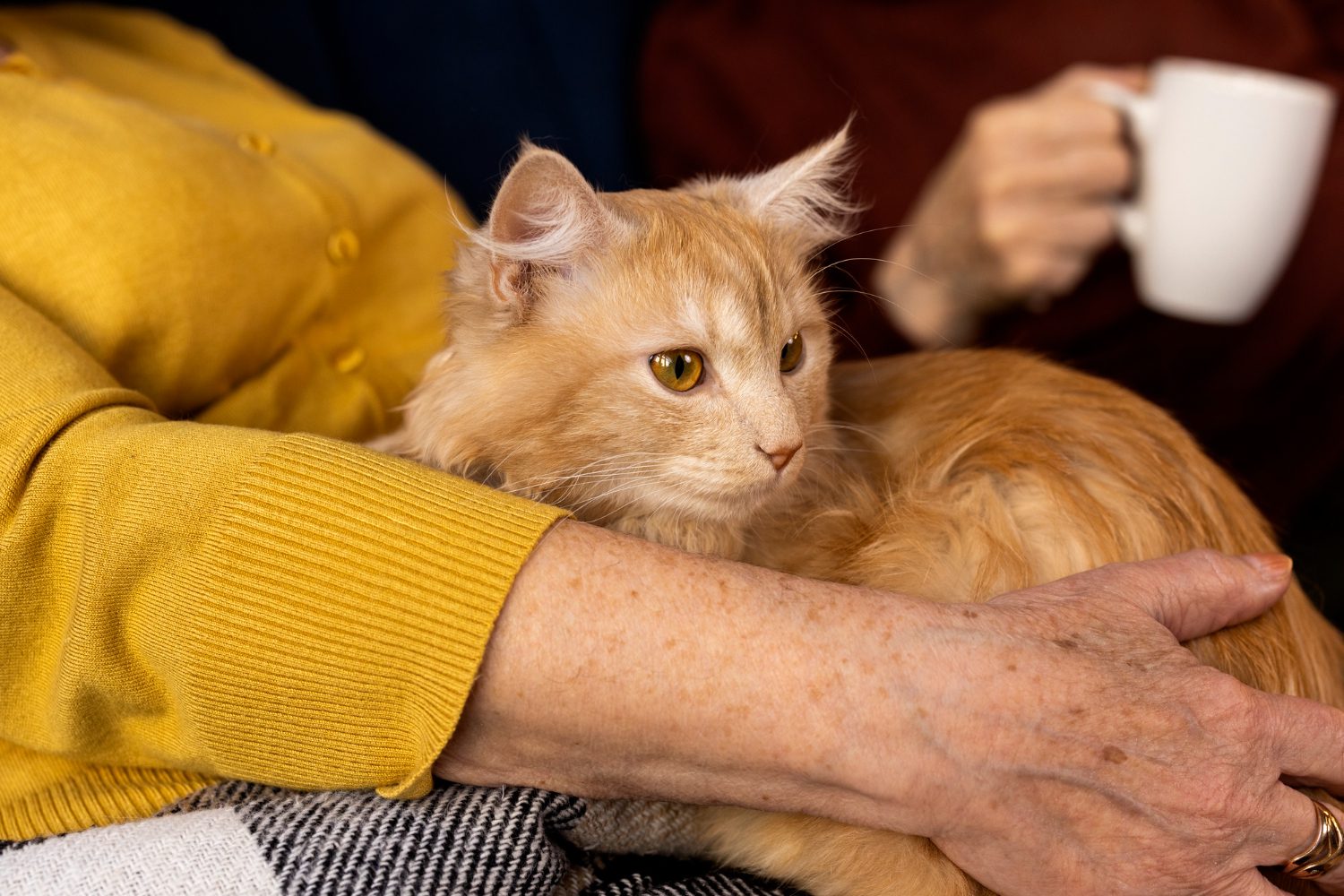Why is My Cat Not Eating?

By Evelyn Harcourt
juli 08, 2025 - 1 min read
It is understandably worrying when a cat goes off its food, particularly if it is usually a good eater. However, it is not uncommon and is usually a short-lived issue.
This article explores when to be concerned about a reduced appetite and discusses ways to help from home. We also look into when you may need to contact your vet, and what a vet visit for inappetence or anorexia (lack of eating) may entail.

Common Causes of Appetite Loss in Cats
There are quite a few potential reasons for a loss of appetite, and determining what is going on will be key to helping your cat.
Medical Conditions
Any medical condition that causes nausea, pain, or a buildup of toxins can lead to a reduced appetite. Some of the most common of these include dental disease, oral ulcers, pancreatitis, hepatitis, kidney failure, and gastroenteritis.
Stress and Environmental Changes
Cats are often sensitive creatures who dislike a change in their routine. This means when a cat moves home or spends time in a cattery, it may take a few days to settle in and for its appetite to pick up. Stress is often linked to cystitis, too, and this can have a real impact on appetite.
Food Preferences and Palatability Issues
Cats are notorious for being fussy, and some may go on hunger strike in the hope of being offered food they find tastier. They will also turn up their noses if the food is too cold or starting to spoil.
Medications and Recent Vaccinations
Some medicines affect appetite. Antibiotics and chemotherapeutic drugs, for example, can lead to nausea and a reduced willingness to eat.
You may also see a lack of appetite in the first 24 hours after a vaccine, particularly in those who develop a fever.
Age-Related Factors
Senior cats are more prone to food refusal and reduced appetite, which are generally linked to underlying medical issues, such as gingivitis or chronic pain caused by osteoarthritis.

Accompanying Signs and Symptoms to Watch for
If you notice your cat is off their food, monitoring closely for any other symptoms is essential.
Weight Loss and Muscle Wasting
An ongoing lack of appetite means your cat is not consuming enough calories, leading to weight loss and muscle waste.
You can use a weighing scale to check for this and regularly assess their Body Condition Score.
Vomiting, Diarrhoea or Constipation
Check for pooled vomit around the home and monitor your cat's behaviour in its litter tray. If your cat is an outdoor cat, it is a good idea to keep it indoors with a couple of trays so you can see what it is doing.
Lethargy, Hiding or Behaviour Changes
You will also want to keep a close eye on their behaviour. If they are unwell, you may notice they are less sociable, sleeping more, and hiding away.
Dehydration and Poor Coat Quality
A prolonged lack of appetite can mean your cat’s fur starts to suffer, and they develop a lacklustre coat and dry skin. If they also drink less, you may find their gums are tacky rather than moist and their skin is less elastic.
At-Home Assessment and First Steps
As soon as you notice your cat is not eating as it usually does, you can start implementing some changes from home.
Monitoring Food and Water Intake Accurately
You’ll want to determine just how much they are consuming. It helps to measure food portions on a kitchen scale and to measure the water at the start and end of the day, noting the difference. All of this information will be helpful for your vet.
Offering Highly Palatable “Starter” Foods
If your cat turns its nose up at its regular food, it may be happy to eat something more appealing. It can be worth trialling options such as tinned fish, mashed chicken, or scrambled eggs.
Warming or Moistening Meals for Aroma
Add warm water to their meals to release the smell and create a tasty gravy. Cats are more likely to sample and eat food that smells good and is easy for them to swallow.
Reducing Stressors and Creating a Quiet Feeding Area
Given how sensitive cats can be to the environment around them, it is worth paying close attention to this. Try to keep the home calm and quiet, keeping visitors away and giving your pet alone time when they eat.

When to Call Your Veterinarian
It can be tricky to know exactly when vet care is needed, and it is always best to err on the side of caution. If you are concerned, contact a vet near you.
Time Frames Based on Age and Health Status
How long we give a cat to ‘perk up’ from home before seeking vet care depends on its age, medical history, and coping skills. Kittens and seniors cannot tolerate much time without food, while healthy adults may seem largely unaffected even after a day or two of not eating.
Red-Flag Symptoms Requiring Same-Day Care
Urgent signs to be aware of would include persistent vomiting, rapid breathing, abdominal bloating, weakness or obvious lethargy.
Call an emergency vet if your cat is exhibiting any of these symptoms.
What Information to Record Before the Appointment
Before heading to your vet, note when your cat’s appetite dipped, what (if anything) they are eating, their thirst levels, and any other new symptoms you’ve noticed.
Vet Diagnosis and Treatment for Cats Not Eating
When your vet sees you, they’ll ask for a recent history and should hopefully be able to read through your cat’s medical record.
Physical Exam and Oral Inspection
They will check your pet from nose to tail, assessing for anything amiss. This should include a thorough oral exam, as a reduced appetite is often related to oral pain, especially in middle-aged or older pets.
Further Tests
If your vet has any concerns, they may recommend further testing. Depending on the physical exam and your cat’s age, this might include general blood work, urine analysis, and imaging of the chest and abdomen.
Therapy Options
How we treat anorexia will largely be dictated by the cause (or suspected cause). If, for example, the cat has some feline oral resorptive lesions (FORLs), the therapy of choice will be dental.
Some patients will be given medication, including appetite stimulants, anti-nausea medicine and/or antacids.
Feeding Tubes and Hospitalisation
Less commonly, a cat will need to be admitted to the clinic and hospitalised. These patients may need IV fluids and tube feeding to support them.
Complications of Prolonged Anorexia
Unfortunately, not eating can have quite a few negative effects on the feline body, should it continue.
Hepatic Lipidosis (Fatty Liver)
One of the big worries vets have when a cat stops eating is fatty liver disease. This is especially true when the cat was obese to begin with. Fat builds up in the liver, preventing it from functioning as it should.
Keeping your cat slim is an excellent way of protecting them from fatty liver. To read more about keeping your cat in tip-top shape, check out our preventative health care section on our website.
Additional Effects
Without nutrition for fuel, the body is less efficient at fighting infections, staying hydrated, maintaining a normal body temperature, and even healing wounds.

Long-Term Management for Cats Not Eating
For those prone to bouts of low appetite, there are interventions you can try.
Balanced Diet and Regular Feeding Schedule
Find a feeding schedule that suits your cat. This will often be graze feeding, ensuring the food is always fresh. Your cat should be on a diet that is palatable and suitable for its life stage.
Environmental Enrichment and Stress Reduction
As stress plays a huge role in general demeanour and appetite, do what you can to maintain a calm and consistent environment for your kitty.
Offering plenty of mental enrichment and physical stimulation, things like food puzzles, interactive toys, and cat trees can help keep stress levels low.
Gradual Diet Transitions
Any new diets should be introduced slowly over several days. Abrupt diet changes can lead to stomach upset and new food aversions.
Routine Health Checks and Dental Care
Cats should be seen by their vet every 6-12 months, with particular focus on their oral health. Dental cleanings should be carried out when required.
Explore More Options If Your Cat Isn't Eating
If your cat is still refusing to eat, it might be time to explore other solutions tailored to their needs.
Contact us today for expert advice and personalised support.
Cat Not Eating FAQs
Why won’t my cat eat new food?
Cats are creatures of habit, and some dislike trying new things, preferring to stick to familiar ones. Be sure to introduce new foods slowly over several days.
Can stress make a cat stop eating?
High cortisol levels can cause a range of signs, one of which is a reduced appetite. This is often seen after trips to the vet or stays in a cattery, for example.
How long can a healthy cat safely fast?
The duration depends on things like the cat’s age, how hydrated it is, and whether it has a normal body condition score. Most healthy adults may start seeing changes in their energy and electrolyte levels after a few days.
Will syringe feeding hurt my cat?
If you use a syringe to offer your cat some liquidised food, gently put it in their cheek or at the front of their tongue so they can swallow it themselves. When done correctly, this should not cause any pain or stress.
Continue reading

Rabbit Haemorrhagic Disease (RHD): What to Do
Learn what Rabbit Haemorrhagic Disease is, the symptoms to watch for, and what to do next.
Read article
Dog Back Pain: Symptoms and Treatment
Discover the symptoms, causes, and treatments of dog back pain and when to see a vet.
Read article
What is the Best Pain Relief for Dogs?
Explore safe pain relief options for dogs, including treatments, signs, and vet guidance.
Read article